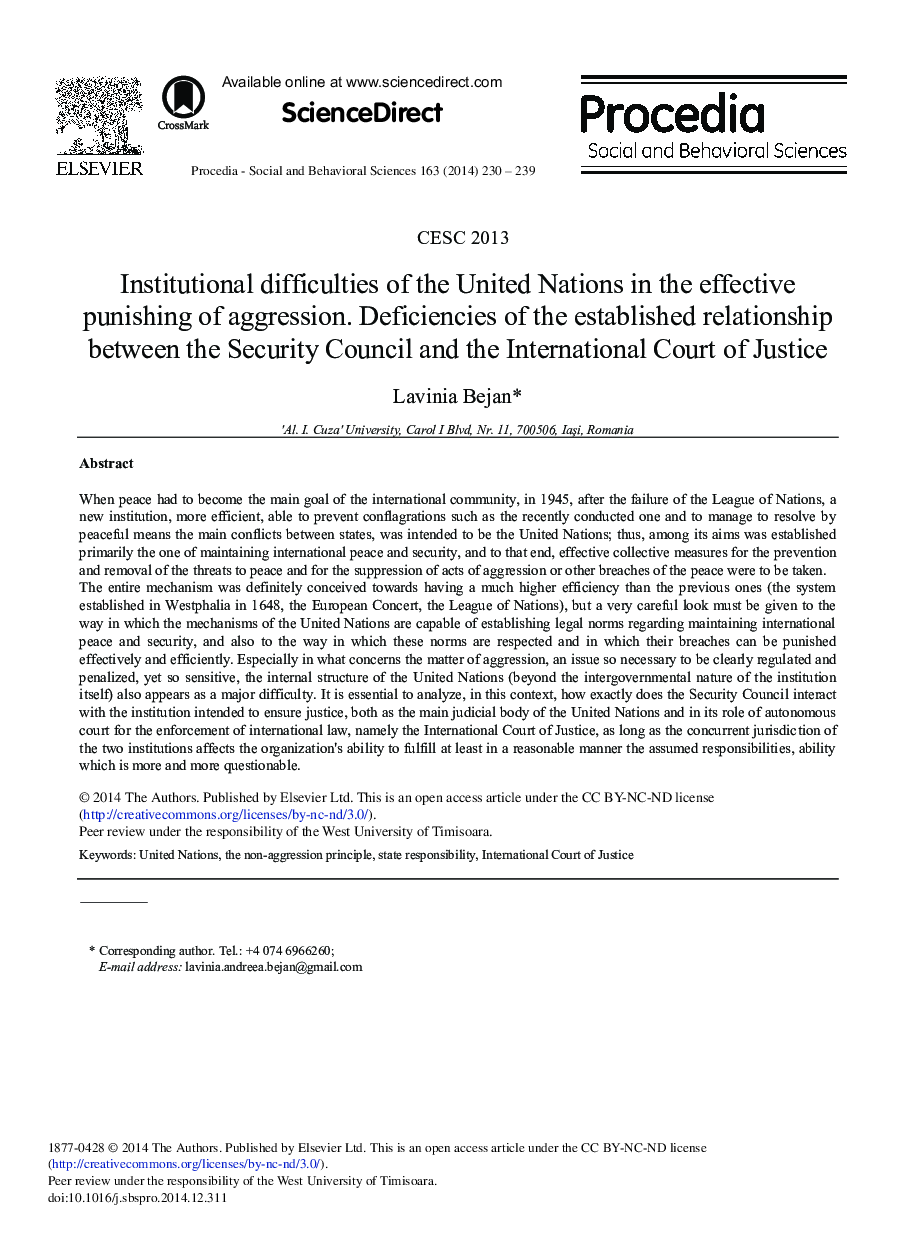| Article ID | Journal | Published Year | Pages | File Type |
|---|---|---|---|---|
| 1112485 | Procedia - Social and Behavioral Sciences | 2014 | 10 Pages |
When peace had to become the main goal of the international community, in 1945, after the failure of the League of Nations, a new institution, more efficient, able to prevent conflagrations such as the recently conducted one and to manage to resolve by peaceful means the main conflicts between states, was intended to be the United Nations; thus, among its aims was established primarily the one of maintaining international peace and security, and to that end, effective collective measures for the prevention and removal of the threats to peace and for the suppression of acts of aggression or other breaches of the peace were to be taken. The entire mechanism was definitely conceived towards having a much higher efficiency than the previous ones (the system established in Westphalia in 1648, the European Concert, the League of Nations), but a very careful look must be given to the way in which the mechanisms of the United Nations are capable of establishing legal norms regarding maintaining international peace and security, and also to the way in which these norms are respected and in which their breaches can be punished effectively and efficiently. Especially in what concerns the matter of aggression, an issue so necessary to be clearly regulated and penalized, yet so sensitive, the internal structure of the United Nations (beyond the intergovernmental nature of the institution itself) also appears as a major difficulty. It is essential to analyze, in this context, how exactly does the Security Council interact with the institution intended to ensure justice, both as the main judicial body of the United Nations and in its role of autonomous court for the enforcement of international law, namely the International Court of Justice, as long as the concurrent jurisdiction of the two institutions affects the organization's ability to fulfill at least in a reasonable manner the assumed responsibilities, ability which is more and more questionable.
